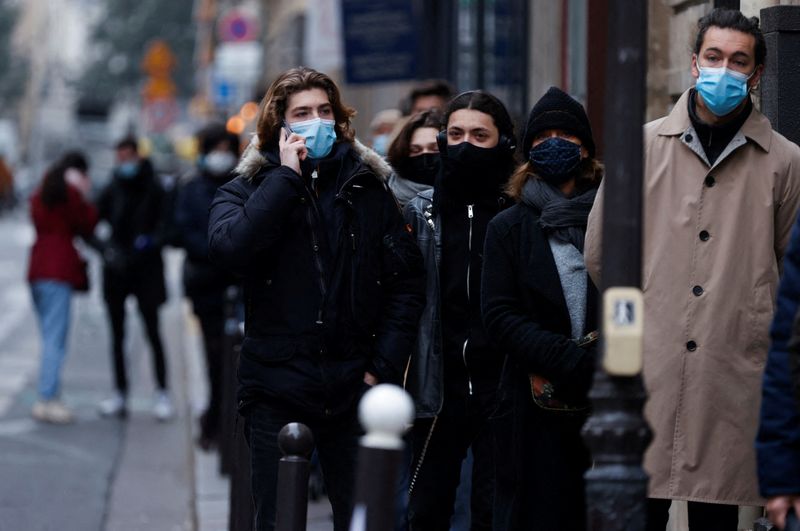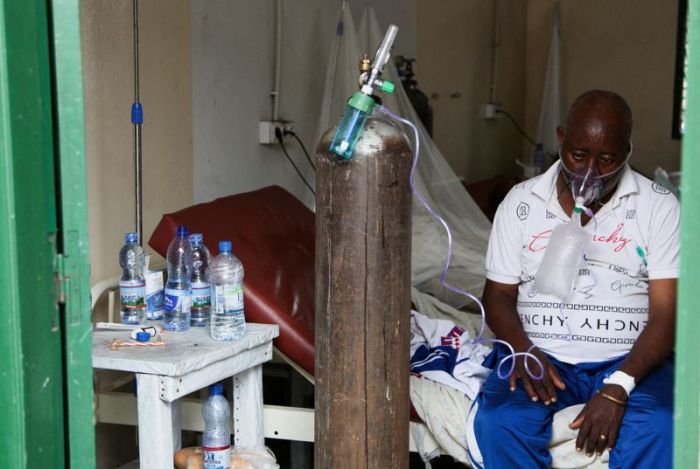PARIS (Reuters) -France reported a record high of 179,807 new confirmed coronavirus cases in a 24-hour period on Tuesday, one of the highest one-day tallies worldwide since the start of the pandemic.
It is the highest number of new daily infections in Europe, according to data on Covidtracker.fr. Since the start of the pandemic, only the United States and India have reported average daily new cases above 200,000. On Monday, the United States reported more than 505,000 new COVID-19 cases.
Britain on Tuesday reported a record 129,471 new cases of COVID-19, but the data did not include figures for Scotland and Northern Ireland due to differences in reporting practices over the Christmas holiday period.
France’s previous record of 104,611 was set on Saturday, after the 86,852 high of Nov. 11, 2020, was broken with two consecutive days of more than 90,000 new cases per day at the end of last week.
The seven-day moving average of new cases in France – which smoothes out daily reporting irregularities – rose to a new all-time high of 87,500. On Sunday and Monday, the health ministry reported only about 30,000 new cases per day.
On Monday, the government announced new measures nL1N2TC0ZT to curb infections, including limits on the size of big gatherings, a ban on eating and drinking in transport systems and the mandatory wearing of masks again outdoors.
Despite the jump in new cases, the number of patients in hospital with COVID-19 remained well below record levels, with COVID-19 patients in intensive care up by 83 to 3,416 on Tuesday, well below the highs of more than 7,000 in early April 2020.
France also announced 290 new Covid deaths, taking the total over 123,000, the highest one-day toll since early May but well below death tallies seen late last year.
About 77% of the population is now fully vaccinated, which has sharply reduced the number of hospitalizations and deaths.
The Covid incidence rate – the number of new cases per week per 100,000 citizens – rose to over 900, the highest since the start of the epidemic and nearly twice the levels seen during the third wave in November 2020.
(Reporting by Geert De Clercq; Editing by Chris Reese, Emelia Sithole-Matarise and Mark Porter)

























